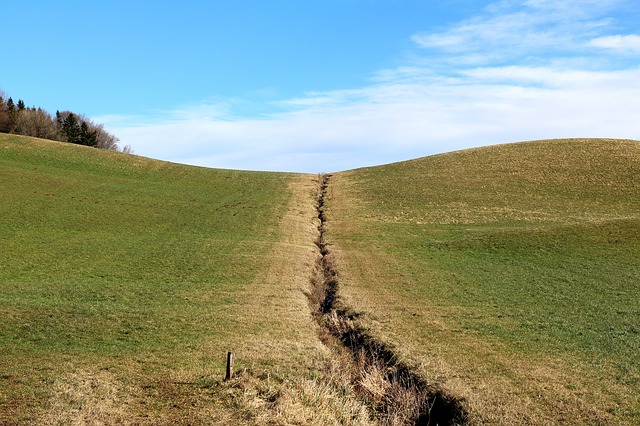
We Stand Divided
The Effects of Inequality on Society
Read a summary using the INOMICS AI tool
Inequality is rampant, we hardly need telling. Rarely does the print media pass up an opportunity to remind us. We stand inundated by an endless stream of statistics – on scales barely fathomable – each one more depressing than the last. For instance, it’s widely known that: ‘8% of humanity takes home 50% of global income’; that ‘the top 1% own 45% of the world’s wealth’; and how could we forget that ‘the 26 richest people on earth had the same net worth as the poorest half’. As shocking as these stats once were, they’re now dishearteningly familiar; we can recite them unassisted; we are numb to them.
Perhaps a worse indictment, however, is that for many they never had much effect. They never came close to capturing their actual reality: the shortage of food, the fragmentation of community, the political alienation. While coping with these concerns, that the 1% had further increased their collective wealth by X trillion dollars was only ever background noise, a little salt on the wound. Statistics of this kind may sell newspapers, but they don’t capture experience.
There's no let-up
Alas, such is the prevalence of inequality, it’s at risk of defining our time. Among the Organisation for Economic Co-operation and Development (OECD) countries, it’s reached a record high, and economists see little sign of it abating. We now live in societies divided: the haves and have nots; those with opportunity and those denied; inhabitants of good, desirable areas, and the left-behind, the forgotten. In a moment in which fracturing communities need healing, inequality undermines any efforts, driving its big wedge into the ever-growing in between.
Indeed, it’s only in the last 15 years, or so, that the full impact of these divisions have been assessed in earnest, and the array of inequality’s far-reaching effects laid bare. Some are not so easily identifiable, let alone quantifiable. And yet, an appreciation of them is essential if the true nature of inequality is to be understood. The reality beyond the money-oriented stats; inequality as experienced on-the-ground. Academics should be thanked for filling the void, as there now exists a robust body of research concerning the psychological effects of inequality, exploring, in particular, the trust it diminishes among individuals, and for institutions; the sense of community it erodes; and its links to growing political apathy. It’s these more insidious impacts, often obscured from popular view, that are of interest here – and it’s no exaggeration to say, they run deep.
Solidarity on the wane
Research by sociologists Marii Paskov and Caroline Dewilde has shown that living in unequal societies fundamentally changes the way people interact with those living around them, and, more broadly, how they perceive their community. Most notably, inter-societal solidarity – that is the willingness of individuals to try and improve the living conditions of other members of their community – suffers. As a general rule, the solidarity expressed by an individual is stronger ‘toward people with whom there is less social distance’, social distance describing the distance between different groups within the same society. Rather unhelpfully, inequality creates the opposite conditions, increasing the social, and also the mental space between community members. This distance limits the individual's ability to recognise the indirect benefits they, too, stand to enjoy by helping others. Thus, the notion that improving one person’s life benefits the whole of society is quickly forgotten. As the collective traits of generosity and compassion reduce, and social cohesion is damaged, the slippery slope is then further greased. The same study shows that declining solidarity is quickly reflected in dwindling public support for government-led redistribution, which, for communities facing high levels of inequality, is exactly what is most needed.
Mistrust
Economist Henrik Jordhal has looked further, linking greater social distance not just to estrangement, but to higher levels of mistrust. Specifically, the growing belief that other members of one’s community are fundamentally different from oneself. Exactly why this is so dangerous requires little imagination. Scepticism of others prevents the establishment of relationships, setting in motion a vicious cycle: social distance leads to mistrust which leads to further social distancing. Divisions are sown, consolidated, and communities fragment – often, to give things a volatile edge, on ethnic lines. Suspicion pervades the air. And sometimes, violence can follow.
Moreover, the work of Professor Frank J Elgar has shown that societies with low levels of trust struggle to create the social supports and connections required to improve the health, and allow for the comfortable ageing, of its members – even outside of a welfare state context. Communities, in effect, err towards atomisation. An individual's welfare, regardless of age, is no longer considered a collective concern, and is seen solely as the responsibility of the individual – and, thus, Thatcher’s dream is realised.
Political apathy
Declining trust is not exclusive to individuals, but extends to people’s faith in institutions. In a research paper exploring the impact of inequality on values and attitudes, social scientist Frederic L Pryor found that people in less equal countries had less interest in politics, less confidence in their sitting parliament, and often bemoaned a societal lack of respect for authority. And his work is no outlier. Associate professor Frederick Solt argues in a similar vein. His analysis has demonstrated that higher levels of inequality ‘powerfully depress political interest, the frequency of political discussion, and participation in elections’. It’s hardly surprising either. For how is it possible to reconcile the optimistic, soundbite promises of politicians with the biting reality of a life stung by inequality? Successive governments from across the political spectrum have tried (some harder than others) and failed to arrest the trend toward inequality. As things deteriorate, disillusionment is, in many ways, the logical response.
To make matters worse, the apathy Solt’s work observes applies to all but the most affluent. With their political intentions unperturbed, and enjoying an ever-growing slice of the economic pie, they are even better placed to set the political agenda, a privilege that can be – and often is – used to ring-fence wealth, exacerbating the original problem.
Self-reinforcing
And herein lies one of the larger problems. Inequality is reinforcing itself, it’s digging in. Those benefiting from its advance – maybe predictably – are unwilling to surrender their place at the top of the tree. But surrender they must. Before that happens, though, one prohibiting fallacy needs dispelling. Often observed in unequal societies is the collective belief that the wealthy elites (most of whom were in fact born rich), have risen to their position by virtue of superior talent, endeavour, and dedication rather than their birthright, while those languishing at the bottom owe their squalor to idleness and profligacy. This unhelpful internalisation, which attempts to legitimise the status quo, is patently untrue. Inequality stymies social mobility, and although just one of its many causes, its eradication would greatly improve the meritocratic nature of our unequal world – and make people happier.
When former IMF chief, Christine Lagarde, is compelled to say that, ‘reducing excessive inequality is not just morally and politically correct, it is good economics’, you know it’s time to act – even the neoliberals are conceding it's gone too far. We must demand that our politicians address the growing gulf. For there is nothing natural or inevitable about the scale of inequality that we endure. It is a choice and it has to be reversed.
-
- PhD Program, Program, Postgraduate Scholarship
- Posted 5 days ago
PhD Program in Economics - 6 Fully Funded Scholarships
at Luiss Guido Carli University of Rome in Rome, Italy
-
- Postdoc Job
- Posted 1 week ago
6-Year Postdoc with Option for a PermanentContract (f/m/d, 100%)
At ZEW – Leibniz-Zentrum für Europäische Wirtschaftsforschung GmbH Mannheim in Mannheim, Germany
-
- Research/Project Funding Opportunity
- (Online)
- Posted 1 week ago
Research Grant on Education - One Grant worth €200,000
Starts 15 May at UniCredit Foundation













